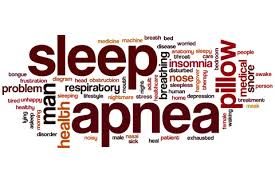- Home
- Editorial
- News
- Practice Guidelines
- Anesthesiology Guidelines
- Cancer Guidelines
- Cardiac Sciences Guidelines
- Critical Care Guidelines
- Dentistry Guidelines
- Dermatology Guidelines
- Diabetes and Endo Guidelines
- Diagnostics Guidelines
- ENT Guidelines
- Featured Practice Guidelines
- Gastroenterology Guidelines
- Geriatrics Guidelines
- Medicine Guidelines
- Nephrology Guidelines
- Neurosciences Guidelines
- Obs and Gynae Guidelines
- Ophthalmology Guidelines
- Orthopaedics Guidelines
- Paediatrics Guidelines
- Psychiatry Guidelines
- Pulmonology Guidelines
- Radiology Guidelines
- Surgery Guidelines
- Urology Guidelines
Weight Management Guideline in sleep apnea by American Thoracic Society

American Thoracic Society has released its new guideline focused on the role of weight management in treating adult obstructive sleep apnea (OSA). The guideline has appeared in American Journal of Respiratory and Critical Care Medicine.
The 20-member guideline panel – which included sleep, pulmonary, weight management and behavioural experts, as well as three patients – reviewed a number of studies and rated the strength of study findings, along with the certainty of the panel’s recommendations by using the GRADE system.
Obesity is a common, reversible risk factor for obstructive sleep apnea severity (OSA) and weight loss can often reduce the severity of OSA. In obstructive sleep apnea (OSA ) the upper airway becomes blocked repeatedly during sleep, reducing or stopping airflow.
“This guideline expands the content of previous clinical practice guidelines addressing the care of OSA patients who are overweight or obese by offering specific recommendations for weight loss and discussing the evidence for each recommendation,” said David W. Hudgel, MD, panel chair and a specialist and investigator in sleep-disordered breathing. “In addition to these scientifically derived recommendations, the guideline reviews and discusses successful methods for practitioners to discuss weight issues and ways to interact with patients who are overweight or obese.”
Key Recommendations:
For patients with obstructive sleep apnea OSA who are overweight or obese (body mass index – BMI ≥ 25 kg/m2 ) the panel:
- Recommended participation in a comprehensive lifestyle intervention program that includes a reduced calorie diet, exercise/increased physical activity and behavioural counselling (strong recommendation, very low certainty in the estimated effects).
- Suggested that in the absence of a comprehensive program, participation in a diet and exercise program is recommended, together or individually (conditional recommendation, very low certainty in the estimated effects).
For patients with obstructive sleep apnea ,OSA who have a BMI ≥27 kg/m2 and whose weight has not improved despite participating in a comprehensive program--and who have no contraindications to pharmacotherapy such as active cardiovascular disease--the panel:
- Suggested an evaluation for anti-obesity pharmacotherapy (conditional recommendation, very low certainty in the estimated effects).
The panel defined active cardiovascular diseases as “myocardial infarction or cerebrovascular accident within the past six months, uncontrolled hypertension, life-threatening arrhythmias or decompensated congestive heart failure.”
For patients with obstructive sleep apnea OSA who have a BMI ≥ 35 kg/m2 and whose weight has not improved despite participating in a comprehensive weight loss lifestyle intervention program--and who have no contraindications--the panel:
- Suggested referral for bariatric surgery evaluation (conditional recommendation, very low certainty in the estimated effects).
- The panel found that the only available well-controlled trials of bariatric surgery in patients with OSA examined the effect of gastric banding. Gastric banding was not found to be more effective in reducing OSA severity than lifestyle interventions that result in weight loss.
- The panel also noted that weight loss, either through lifestyle changes or bariatric surgery, has benefits beyond reducing OSA severity. Among those benefits is the prevention of type 2 diabetes, improved glycemic control in those with type 2 diabetes, lower blood pressure and improved quality of life.
“This guideline demonstrates that weight loss provides a distinct benefit to OSA patients, but many patients may not know about how to achieve these benefits because their health care provider has not had an in-depth discussion about proven methods to achieve weight loss with them,” said panel co-chair Sanjay R. Patel, MD, professor of medicine and medical director of the sleep laboratory at the University of Pittsburgh Medical Center. “Overweight or obese patients with OSA who are encouraged to participate in a comprehensive weight-loss program that includes calorie reduction, increased physical activity, behavioural counselling and close follow-up.
Weight-loss interventions, especially comprehensive lifestyle interventions, are associated with improvements in OSA severity, cardiometabolic comorbidities, and quality of life and therefore it is recommended that clinicians should regularly assess weight and incorporate weight management strategies that are tailored to individual patient preferences into the routine treatment of adult patients with OSA who are overweight or obese.

Disclaimer: This site is primarily intended for healthcare professionals. Any content/information on this website does not replace the advice of medical and/or health professionals and should not be construed as medical/diagnostic advice/endorsement or prescription. Use of this site is subject to our terms of use, privacy policy, advertisement policy. © 2020 Minerva Medical Treatment Pvt Ltd